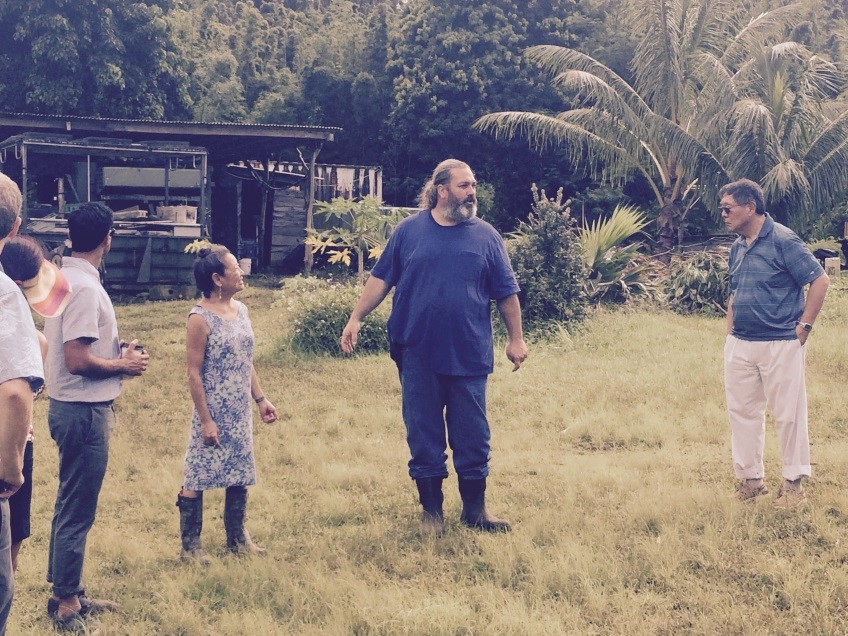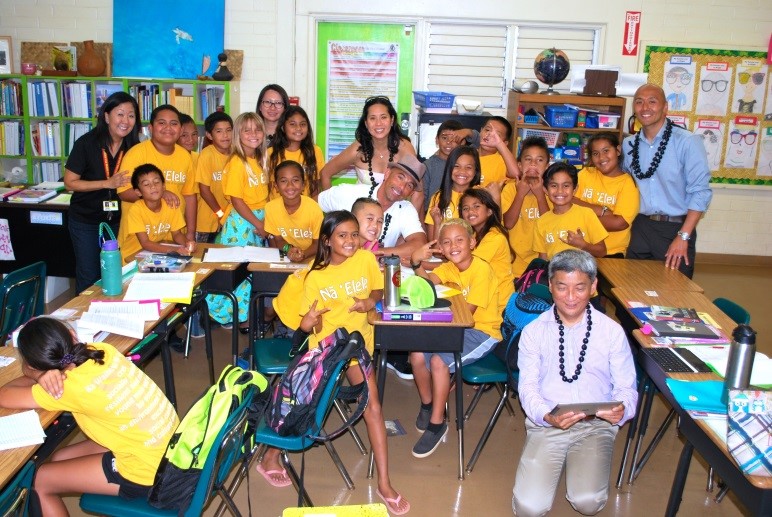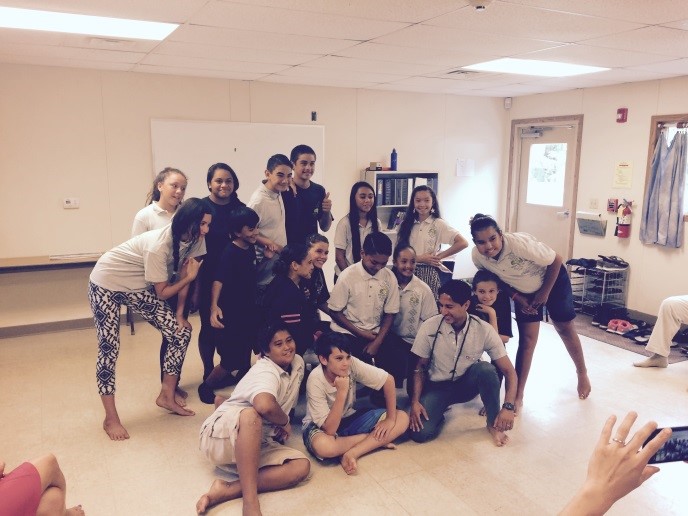
On September 22-25, the President’s Advisory Commission on Asian Americans and Pacific Islanders traveled to Hawaii for a historic visit. Our 19 member Commission works with the White House Initiative on Asian Americans and Pacific Islanders to improve the quality of life for AAPIs in federal programs where they are underserved. Hawaii is home to the majority of Native Hawaiians and Pacific Islanders in the U.S. This historic visit is the first time the Commission has directly engaged with leaders in the Native Hawaiian and Pacific Islander community.
We participated in the 14th Annual Native Hawaiian Convention to understand key policy concerns for Native Hawaiian and Pacific Islanders and Hawaii’s indigenous and migrant communities. During our visit, the Commission attended a series of site visits related to policy issues important to the Native Hawaiian and Pacific Islander community, and witnessed what life is like in these communities.
On September 23, we visited the Ho’oulu Aina (the Kalihi Valley nature preserve) where the Kokua Kalihi Valley Family Services Center staff and volunteers educated us on the local concept of 'aina (land, earth) and the importance of restoring the land to health and productivity in order to create healthy, resilient communities.

Ho’oulu Aina nature preserve staff teach Commissioners about the importance of the ’aina or land, for Native Hawaiian communities, and its connection to community healing and health. (Photo by Dave Hung)
We then attended two Hawaii immersion charter schools to learn about the important educational needs in Hawaii. At the Halau Ku Mana Public Charter School, 7th grade students gave a presentation on the importance of the ’aina in the curriculum, and of preserving local concepts in their educational program. At Ka Waihona o ka Na’auao Public Charter School in Waianae, HI, we spoke with students and faculty on the challenges and opportunities experienced in this predominantly low-income community.


Commissioners Linda Pham, Billy Dec, Bill Imada, Shekar Narasimhan, Lorna Randlett, and Maulik Pancholy participate in visits to Halau Ku Mana and Ka Waihona o ka Na’auao Public Charter Schools. (Photos by Billy Dec)
We concluded with a visit to Paepae o He’eia, where Executive Director, Hi'ilei Kawelo, led us on a tour of the 88 acre He’eia Fishpond. This ancient fishpond is an example of traditional Hawaiian sustainable aquaculture, dating back to 1848. As a private non-profit organization, Paepae o He'eia, provides educational opportunities to schools and community members on the importance of sustainable aquaculture and the removal of invasive species of vegetation.
On September 24th, Commissioners held a Listening Session at the Hawaii Convention Center in Honolulu, HI. About 175 participants attended with over 50 individuals offering public remarks. The listening session was an opportunity to hear directly from Asian Americans, Native Hawaiians, and Pacific Islanders living in Hawaii on their needs, concerns, and recommendations. Speakers shared their thoughts on a diverse array of topics including land rights and affordable housing; education, including the impact of bullying on youth; immigrant rights; the effects of climate change; access to health care; Native Hawaiian sovereignty; and workers issues. To say this experience was eye-opening and informative is an understatement, with many of my fellow Commissioners describing appreciation at the eloquence and passion expressed on these important topics.
Informative and moving 3.5 hrs listening session in #HawaiiAAPI w/ commissioners, lots of imp recs/requests pic.twitter.com/7MdZyMJNrJ
— Kiran Ahuja (@KiranAhujaAAPI) September 26, 2015
Notes from the session will become public record. The Commission rounded out the week with meetings to identify priority issues to share with the appropriate federal agencies for further action, and share thoughts on our goals and objectives for next year.
My @WhiteHouseAAPI team/family https://t.co/ACmMkDTCPW Historic visit: #HawaiiAAPI for #NHPI.. http://t.co/LUEh7z8U38 pic.twitter.com/HY4Fi75EO5
— Billy Dec (@BillyDec) September 22, 2015
This visit was eye opening. We are truly impressed by the breadth of work that Native Hawaiian and Pacific Islander communities are engaged in. We walked away from this visit with renewed energy and inspiration from this community’s dedication improving to the educational, economic, and environmental issues that impact their way of life. This opportunity to engage directly with AAPI communities is transformative, and I continue to be humbled by the resilience and steadfastness of the Asian American, Native Hawaiian, and Pacific Islander leaders. Mahalo for welcoming us to Hawaii and making this such an enlightening experience.
Dr. Tung Nguyen is Chair of the President’s Advisory Commission on Asian Americans and Pacific Islanders.

